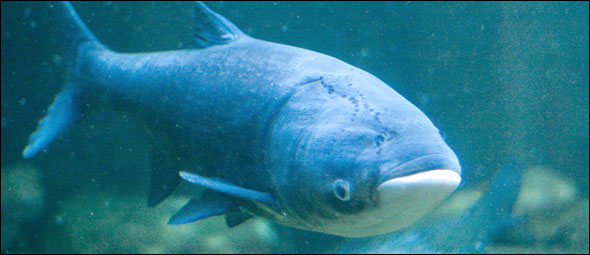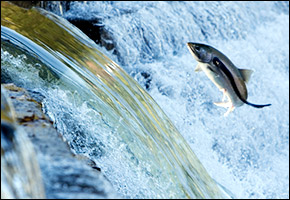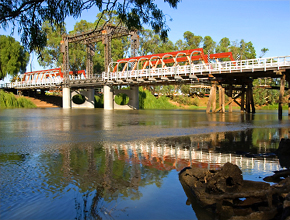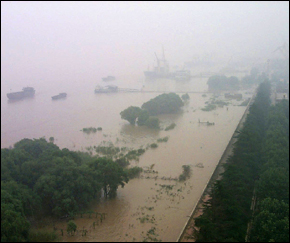Asian Carp Capture Renews Fears of Great Lakes Invasion
A 20-pound fish netted six miles from Lake Michigan has reignited the debate over closing off Chicago-area locks to protect the region’s sportfishing industry

By Steve Kellman
Circle of Blue
A bighead carp caught six miles from the waters of Lake Michigan on Tuesday has reignited alarm that the invasive species will invade the Great Lakes.
The fish has state attorneys general in the area eying new legal strategies to force the closure of Chicago-area waterways to protect sportfishing and boating industries in the world’s largest freshwater system.
Environmental groups and political leaders from several Midwestern states have spent years arguing that more needs to be done to prevent the invasive Asian carp from entering the lakes. The fish were introduced in southern states more than 30 years ago and have been migrating north on the Mississippi and Illinois rivers for years.
The bighead carp variety of Asian carp can grow up to 100 pounds and four feet long, while silver carp reach a maximum of 40 pounds, but are known for jumping out of the water at the sound of boat motors. Scientists fear that the plankton-eating fish will disrupt the food chain in the Great Lakes, threatening the game fish population and the region’s $7 billion sportfishing industry.
The fish netted earlier this week weighed about 20 pounds and measured nearly three feet long. It was caught by a commercial fisherman who is under contract to the state of Illinois to conduct routine fish sampling in the area.
Michigan Attorney General and gubernatorial hopeful Mike Cox launched a legal battle in the Supreme Court last November to force lock closures. While Cox drew support from five other states and the province of Ontario, his suit was rejected by the high court in April.
“Responsibility for this potential economic and ecological disaster rests solely with President Obama,” Cox said Wednesday in a statement. “He must take action immediately by ordering the locks closed and producing an emergency plan to stop Asian carp from entering Lake Michigan.”
Meanwhile Cox’s office is considering a new round of legal action to force faster action on the issue.
“We’re working closely with other Great Lakes attorneys general to review additional legal options,” Cox’s spokesperson, Joy Yearout, told Circle of Blue.
Wisconsin Attorney General J. B. Van Hollen released a statement Thursday evening in support of Cox’s position, reiterating the possibility of more legal action in the case.
“Nothing is stopping the Obama Administration from taking bold action now to protect the Great Lakes,” he added. “It’s time to close the locks.”
The U.S. Army Corps of Engineers, which operates the locks and the electric barrier intended to block Asian carp, has no plans to close the locks in the wake of Tuesday’s discovery. The locks are used to transport millions of tons of cargo a year between the Mississippi River and the Great Lakes.
Mike White of the U.S. Army Corps of Engineers told the Chicago Tribune that Tuesday’s discovery will not change how the agency operates the locks.
“At this time we see no reason … to take any step toward lock closure,” he said.
Environmental groups have reacted with dismay to Tuesday’s news.
“This is code red for the Great Lakes,” said Andy Buchsbaum, director of the Great Lakes Office of the National Wildlife Federation. “If the capture of this live fish doesn’t confirm the urgency of this problem, nothing will.”
Henry Henderson, director of the Natural Resources Defense Council’s Midwest Program and a former Commissioner of the Environment for the City of Chicago, compared the carp to cockroaches. He noted that the capture of one fish suggests many more are lurking nearby.
“Now we can stop arguing about whether the fish are in Chicago’s canals and start moving as quickly as possible toward permanently separating the Great Lakes and Mississippi River watersheds,” Henderson said. “We just cannot wait five to seven years for the Army Corps of Engineers to complete its own studies before deciding to solve this problem.”
Sources: Chicago Tribune, Christian Science Monitor, Detroit Free Press, Milwaukee Journal-Sentinel, National Public Radio
Steve Kellman is a Circle of Blue writer and reporter. Reach him at circleofblue.org/contact.











Leave a Reply
Want to join the discussion?Feel free to contribute!